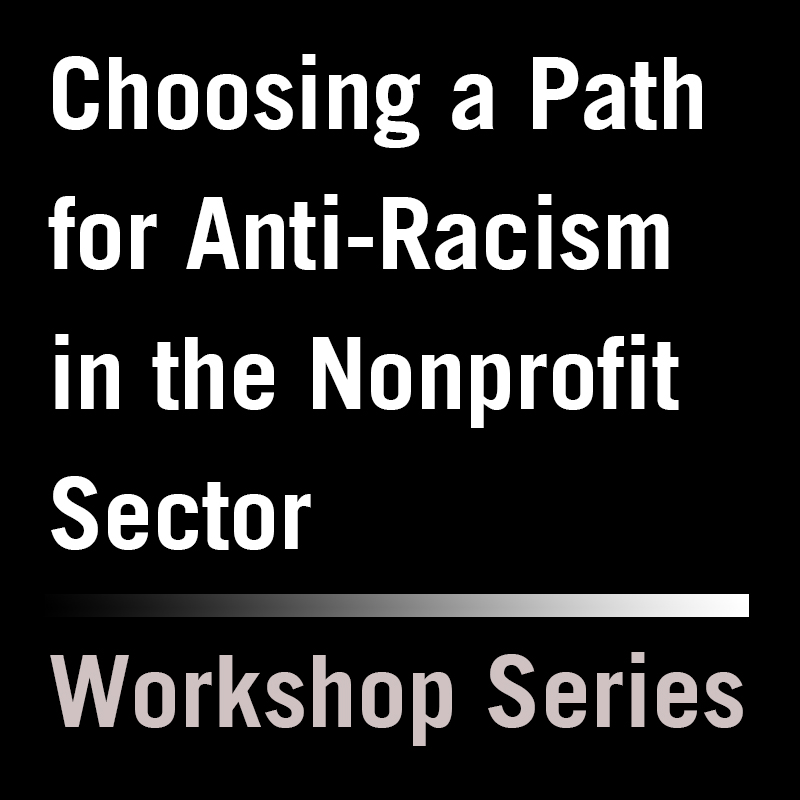Racial Justice 3-part series that gives space to reflect, dialogue, process and move to action within a peer-learning community

Lehigh Valley Community Foundation (LVCF) will hold, Choosing the Path for Anti-Racism in the Nonprofit Sector, a three-part introductory workshop series that will give space to reflect, dialogue, process and move to action within a peer learning community. The workshop is co-sponsored by Humanitarian Social Innovations, and planned in collaboration with the Volunteer Center of the Lehigh Valley will be held in two cohorts, (August 4, 11, 18) and (August 5, 12, 19). The three-part workshop series is facilitated by Erica T. Mahady, Illumination Consulting Partners. (see Ms. Mahady bio below).
The workshop series for nonprofit leaders seeking to gain an understanding of Racial Justice and Anti-Racism and are seeking clarity on how to connect Diversity, Equity, and Inclusion to their organization’s mission or strategy. “Lehigh Valley Community Foundation, in coordination with the Volunteer Center of the Lehigh Valley initiated this event due to the community foundation’s participation in the Strategic Response Team’s Technical Assistance Sub-committee, which was designed to be responsive to needs in our nonprofit community as a result of COVID-19 pandemic,” said Megan Briggs, LVCF director of community investments, who is a member of the Strategic Response Team. This event is a follow-up to Heart-to-Heart: A Dialogue on Diversity and Race, an event that was organized by LVCF in June to offer Nonprofit Leaders a virtual space for connection and reflection in the midst of social uprisings and the COVID-19 pandemic.”
Participation in the three-part series will provide attendees with the following:
- Shared language for discussing racial equity, biases and how to facilitate these difficult conversations.
- Frameworks and tools to understand how to respectfully enter into Diversity, Equity, and Inclusion work for transformational change.
- Guidance on how you can make a commitment and concrete plans for dismantling racism within your organization and in the larger society.
The workshop attendees should be decision-makers and change-agents within organizations. The representative attending should be on a leadership level, with the responsibility of making key decisions for the organization.
Please see the below description of the sessions:
Advancing Diversity, Racial Equity and Cultural Competence: Cultural competence is about our will and actions to build understanding between people, to be respectful and open to different cultural perspectives, strengthen cultural security and work towards equality in opportunity. We will have an opportunity to explore shared language for talking about race, racism and racial justice. To illuminate racism, we need to name it, frame it and explain it.
Anti-Racism and Becoming an Actionable Ally: Historically, it has been people of color who have pushed back most strongly against racism, racial injustice and white privilege. However, for radical systemic change to occur, white people must join with BIPOC (Black, Indigenous, and People of Color) to demand change. Many are resolving to demonstrate allyship by taking actions to counter, disrupt, and dismantle systemic racism through anti-racism. In this workshop, we will explore allyship and anti-racism which are two related concepts that can help white people effectively and respectfully work for racial justice. Additionally, participants will have the opportunity to learn about an approach that anti-racism allies can use to share their perspective with people who are skeptical that racism against BIPOC is a problem worthy of specific attention.
Infusing Equity and Inclusion Across Organizations: The process of dismantling racism is not just about individuals changing behaviors and ways of thinking. This important individual work must in turn trigger a commitment to dismantling racism in organizations. Organizations, like individuals, can evolve to become anti-racist. In this workshop, participants will have the opportunity to complete an assessment to analyze racial equity within their organization. Generative discussions will be utilized to debrief the process. Lastly, each individual will have the opportunity to begin discussing a goal to advance organizational development of racial equity.
